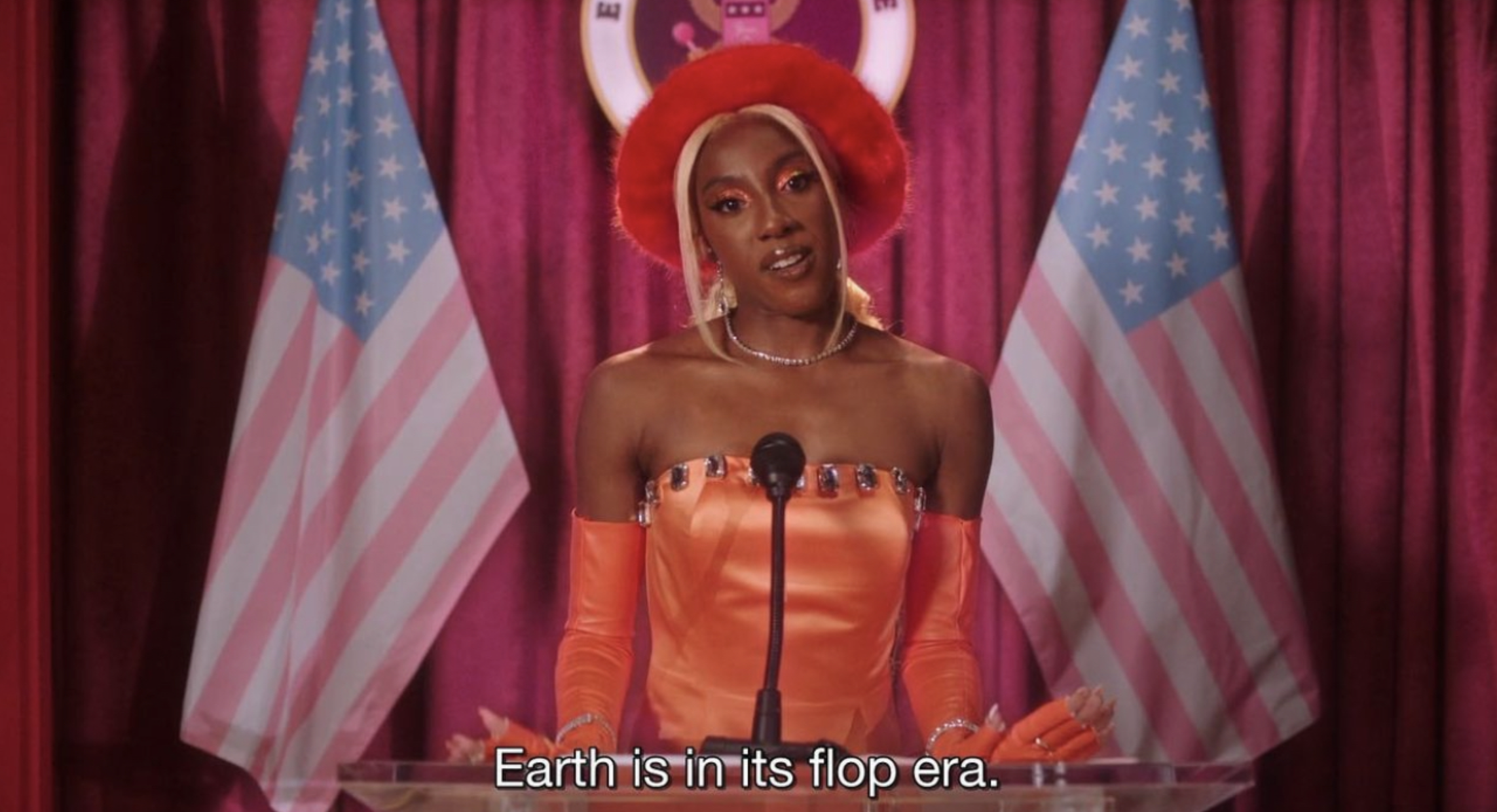Dec 22
Is Sustainability in its Flop Era?

...is sustainability?
Don’t panic, we’re not rebranding- we just couldn’t end the year without addressing the onslaught of greenwashing that’s occurred over the last few years, with 2022 being particularly bad.
This past year, the fashion space has brought us so many campaigns masked behind veils of empty promises, it’s hard to know where to start. Kourtney Kardashian, whose name precedes her, was appointed as a fast fashion GIANT’s (Boohoo) sustainability ambassador? H&M being sued not once, but twice, for misleading sustainability claims? Coldplay partnering with an oil company to ‘halve their world tour emissions’? Not to mention PLT’s Marketplace, which was supposed to be sustainable, the catch being to purchase from their marketplace funds their inherently unsustainable business model. The competition for biggest greenwasher is rough this year.
There were even claims suggesting Patagonia were using its “giving the company back to the planet” announcement, which shook the internet, as a way to (legally) avoid taxes, as a nonprofit. We’re choosing not to believe it because our eco-conscience literally can’t take it.
The billionaire founder of Patagonia gave up the company to protect the planet. He may have skirted a $700 million tax bill in the process https://t.co/tUfG40ubQq
— Bloomberg (@business) September 15, 2022
So when we see positive news which insinuates around 50% of men and women in the UK ‘buy from sustainable brands’, it’s normal to wonder if it’s really true. Is H&M considered a sustainable brand if the survey respondents are shopping from the conscious line? What about if they’re buying pieces from the PLT “marketplace” that are 100% polyester and the result of modern-day slavery- can this be considered sustainable? Even if it’s secondhand, you’re still funding PLT if you’re purchasing from their marketplace.
These greenwashing claims are giving us haunting flashbacks to the fake news era when Tr*mp was in office (tbh did that era ever actually end?). Trying to be sustainable can sometimes feel like trying to do your makeup in the dark- it’s possible, but you’re not likely to get the outcome you wanted.
Whilst we appreciate people may think H&Ms sustainable line is better than nothing, we *respectfully* disagree. The money goes into the same pot, and whilst money spent on sustainable fashion suggests to H&M there’s a demand for more ethical clothing, it excuses their business model and allows them to keep producing clothes at an alarming rate. After all, they did announce plans to double their output by 2030. Somehow with them, 2+2 always equals wtf (disrespectfully).
It’s kind of like when you’re really enjoying something, and then more and more people start doing that thing you’ve been enjoying, that they kind of end up ruining it for you. What we mean to say is that it’s starting to feel like the sustainability scene has become so oversaturated by people (companies) who don’t know how to do it right, that it’s ruining it for the rest of us. Enter the potential “flop era”.
But there are things to celebrate in terms of sustainability. Brands becoming more inclined to use greenwashing as a sales tactic points towards a need for companies to cater to their sustainably conscious audience (us!). If we care enough to force companies to think about the climate, then we should care enough to scrutinise their claims to check they are actually delivering their promises.
The fashion rental market is on the rise, showing a rising awareness around ditching the occasion shopping- if you’re only planning on wearing the dress once, why bother buying it in the first place? The besties who are renting, get it. The same goes for the secondhand market (sans fast fashion’s own marketplaces)- more and more people are opting for items they source on eBay, Depop, Vinted or Vestiaire.
So, we’ll try to stay optimistic. The verdict is that sustainability isn’t in its flop era just yet, but it’s, unfortunately, becoming the consumer’s responsibility to spot what is and isn’t truly sustainable.
Tree Card has created a wonderful guide, talking us through 5 Ways to Spot Greenwashing, but you can simplify it for yourself if doing a dissertation’s worth of research every time you want to buy something isn’t quite up your alley. The simplest way to go about it is to think about the company that profits from these sales- have they made an effort to be wholly sustainable, or are they trying to work around it through a sole campaign?
And if all else fails, check their Good On You rating- a quick google search never hurt nobody- is that how the song goes?